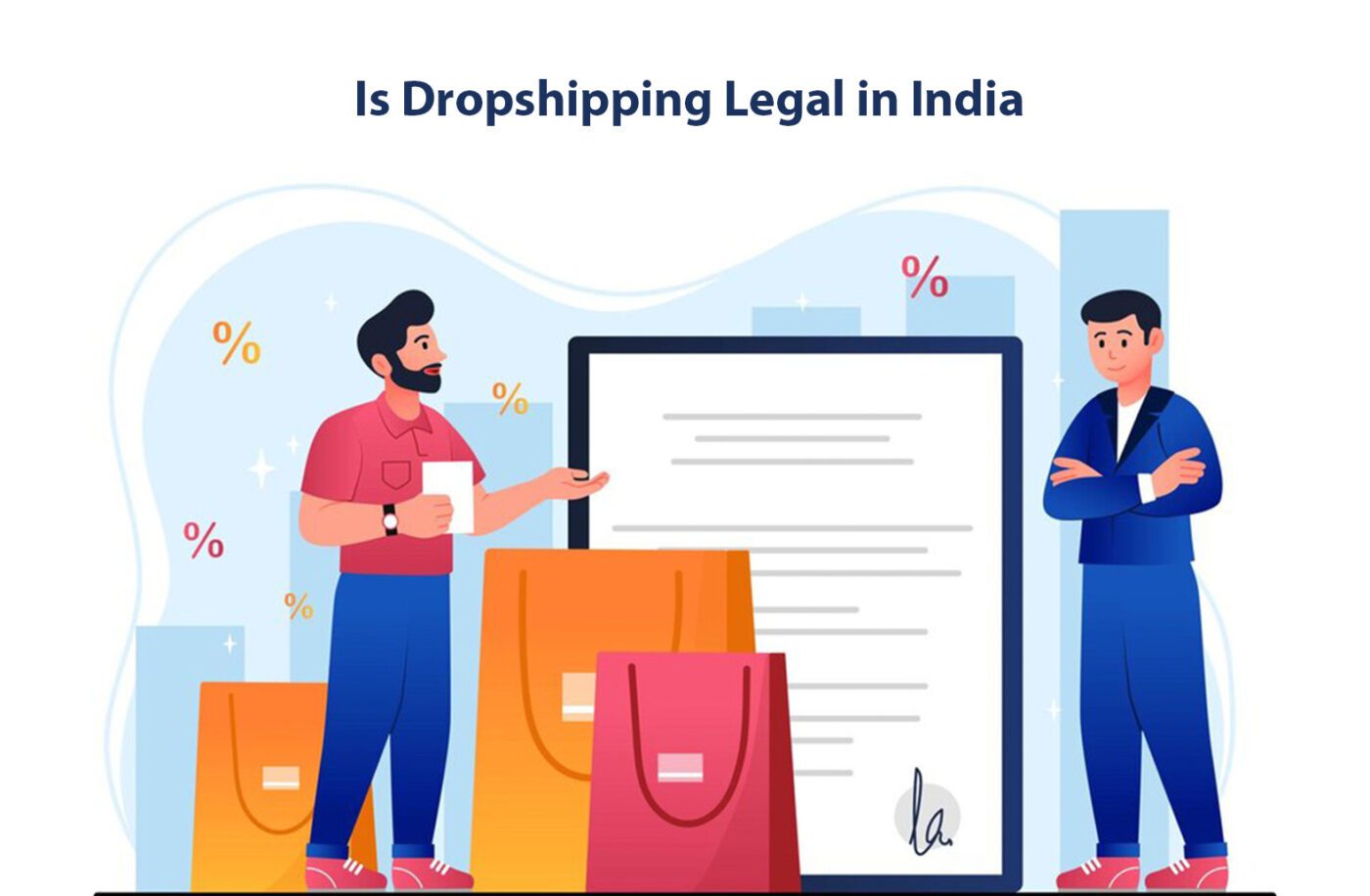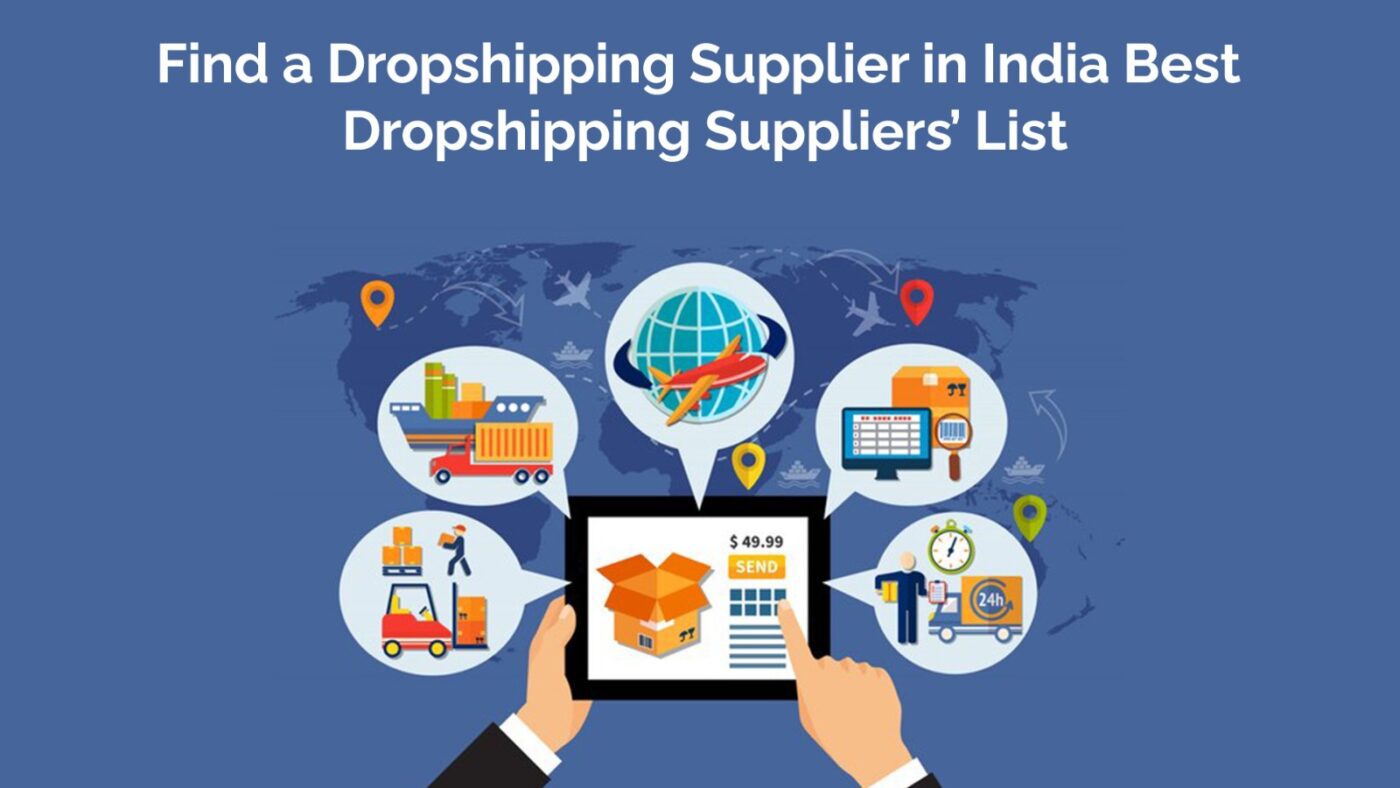Introduction
The ever-changing e-commerce industry has made dropshipping a popular and profitable business concept. Before starting this business, you must ask: “Is dropshipping legal in India?” This detailed blog will cover dropshipping in India’s legal environment, preparing you for your entrepreneurial adventure.
What is Dropshipping Business?
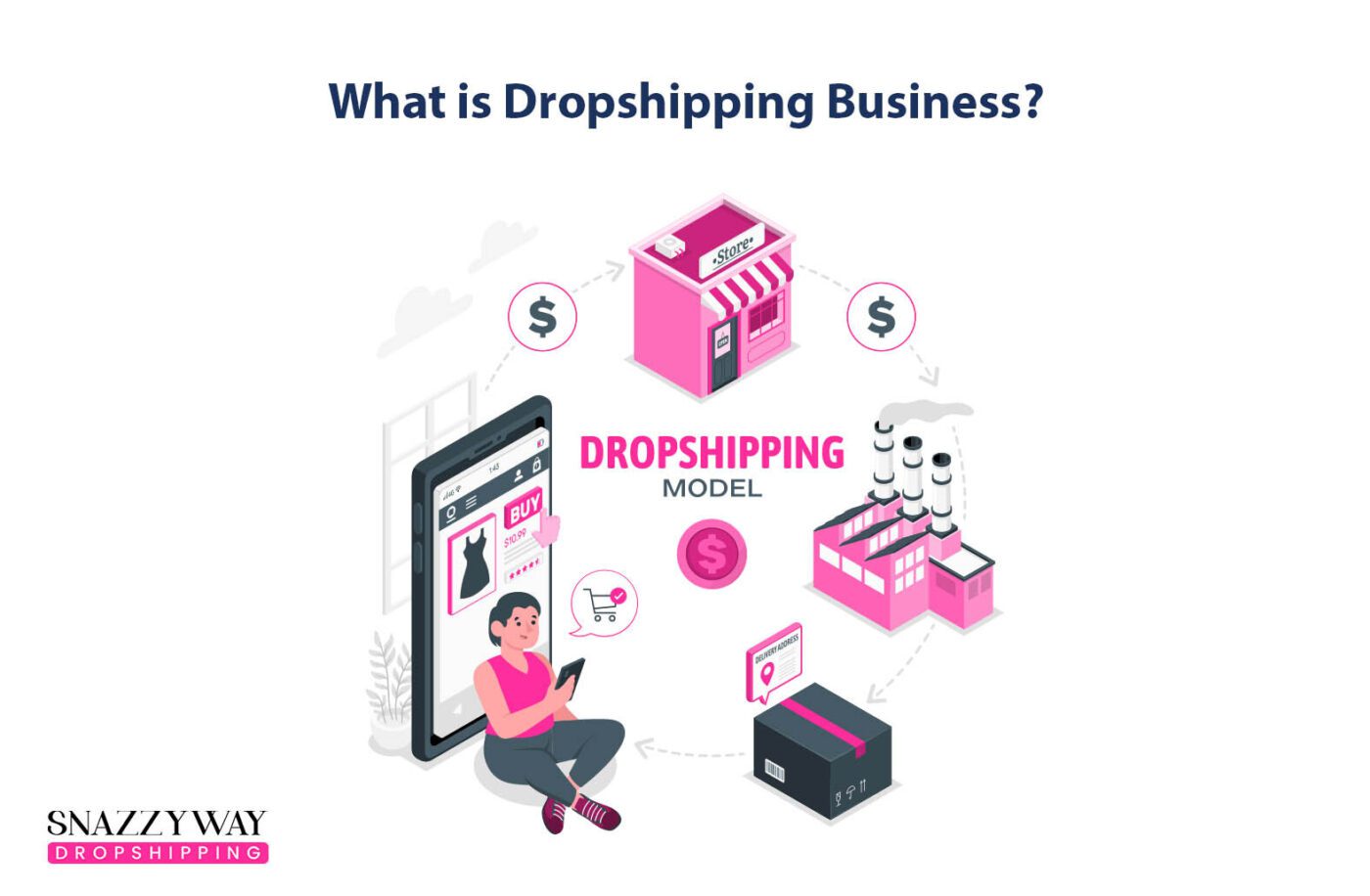
Let’s begin by defining dropshipping. This business model revolves around selling products to customers without the need to hold inventory. Instead, you partner with suppliers who directly ship products to your customers. This means you can start your e-commerce business with minimal upfront investment and reduce the risks associated with traditional retail.
Why is Dropshipping Popular in India?
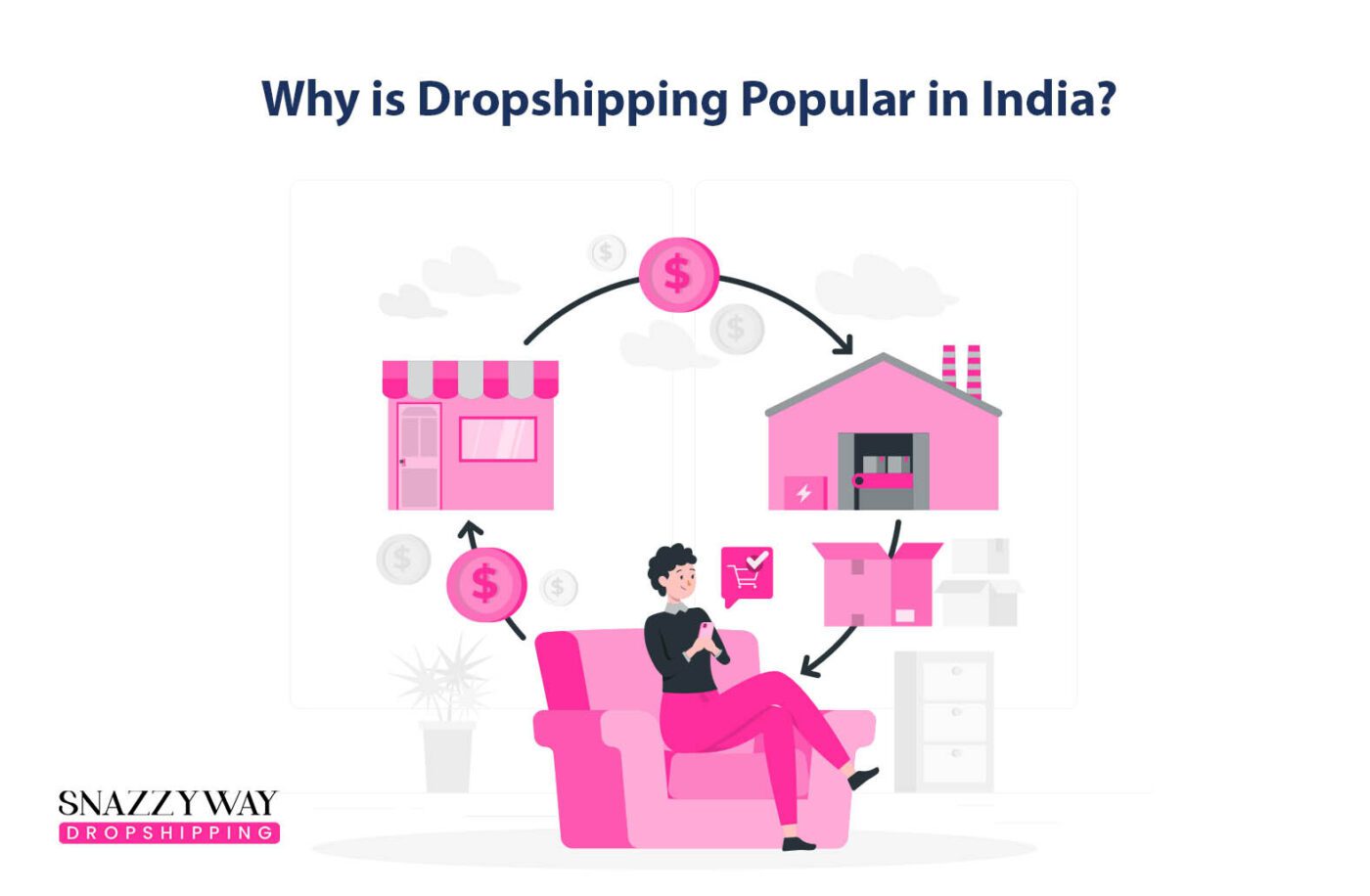
Dropshipping has gained immense popularity in India for several compelling reasons. First and foremost, it offers a low barrier to entry, allowing aspiring entrepreneurs to start their businesses without the burden of heavy capital investments. Additionally, the vast and diverse Indian market provides ample opportunities for niche products and untapped customer segments.
Is Dropshipping Legal in India?
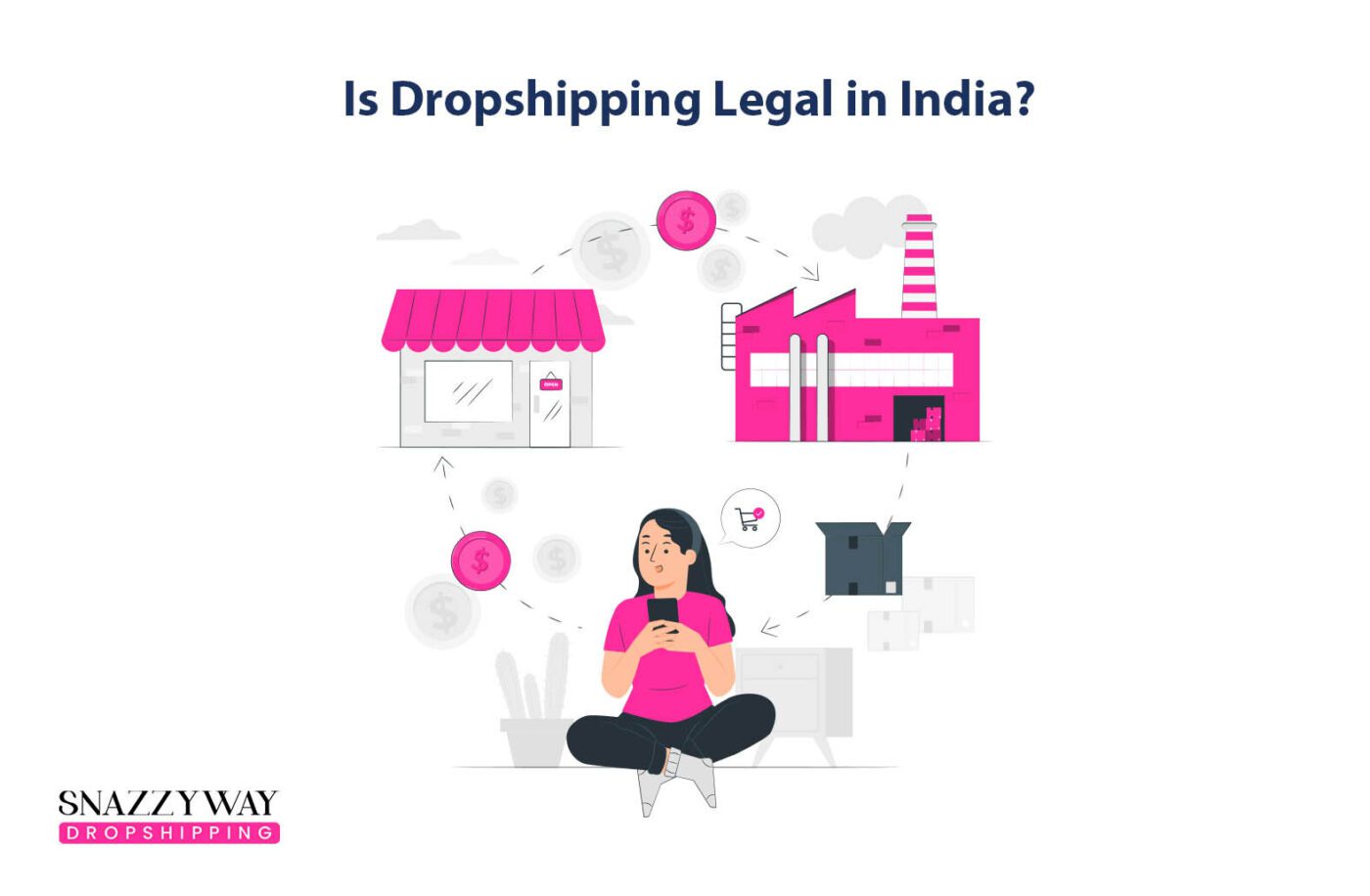
Now, let’s address the pressing question of legality. Yes, dropshipping is legal in India. However, there are specific legal considerations that you must be aware of to operate within the confines of the law.
Legal Considerations for Dropshipping in India
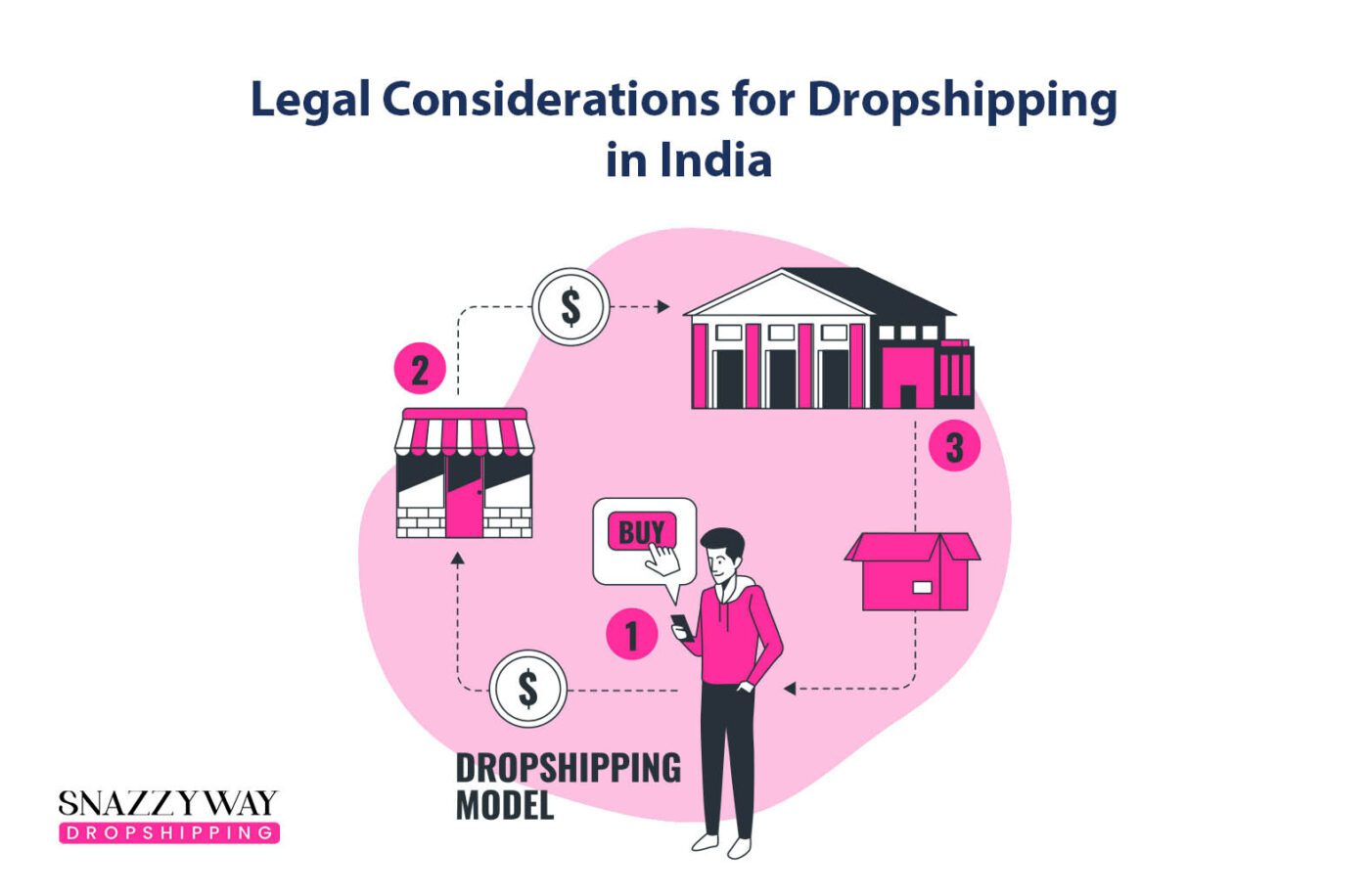
1. Business Registration
While it’s not mandatory to register your dropshipping business in India, it is advisable to do so. Registering your business can provide several benefits, including limited liability protection and access to government schemes and programs that can foster growth and sustainability.
2. Taxes
Dropshippers in India are liable to pay income tax and Goods and Services Tax (GST). The income tax rate will vary depending on your income, while the GST rate will be determined by the products you are selling. Ensuring compliance with tax regulations is imperative to avoid legal complications.
3. Consumer Protection Laws
Dropshippers operating in India are subject to the Consumer Protection Act, 2019. This legislation is designed to safeguard consumers from unfair trade practices and defective products. As a dropshipper, it’s essential to uphold high standards of product quality and customer service to avoid legal repercussions.
4. Import and Export Laws
If you are sourcing products from outside of India, you must comply with all applicable import and export laws. This includes adhering to customs regulations, obtaining necessary licenses, and ensuring the legality of the products you are importing.
Tips for Running a Legal Dropshipping Business in India
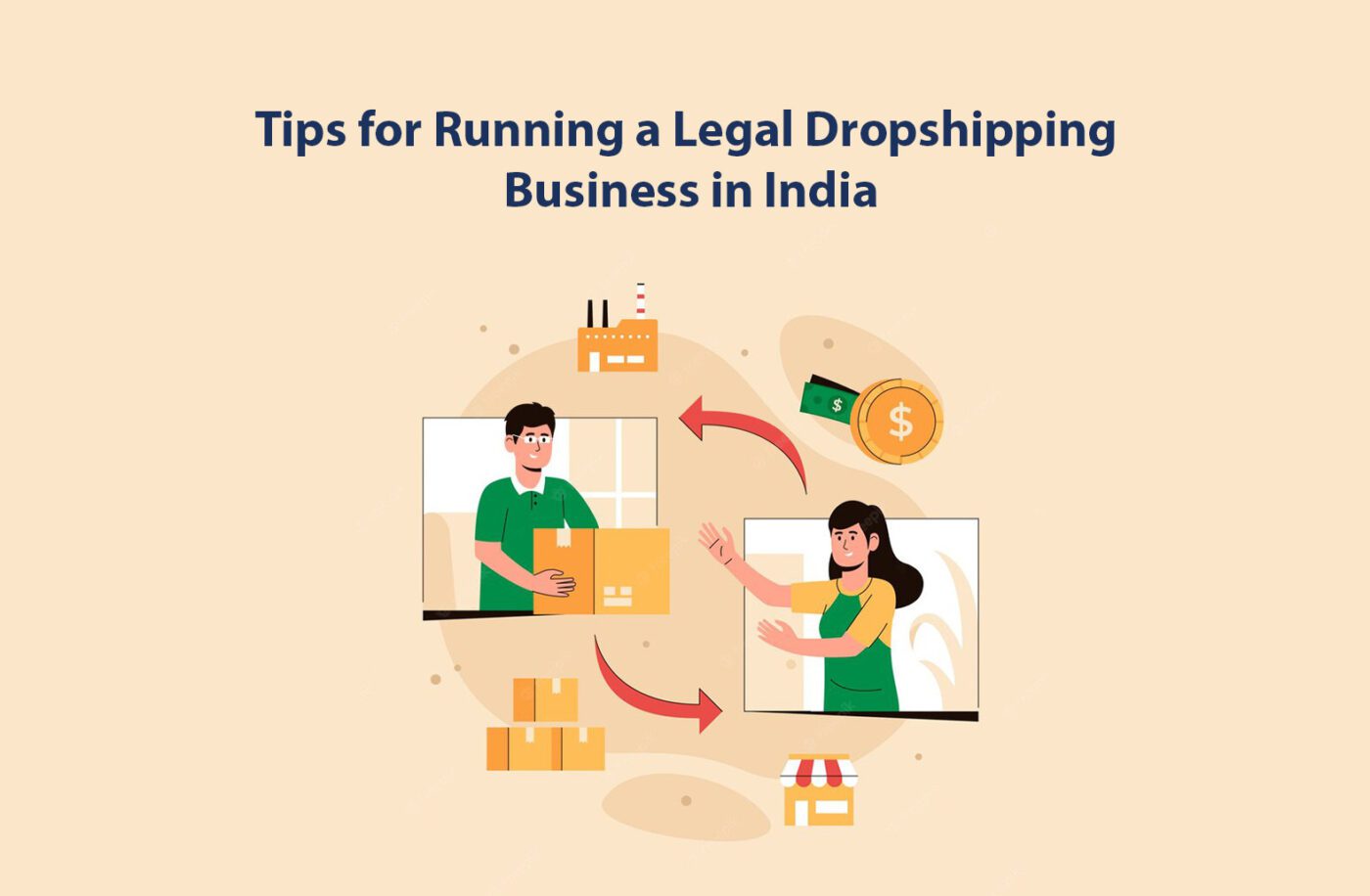
To operate a successful and legal dropshipping business in India, consider the following tips:
- Choose a Reliable Supplier: Partner with trustworthy suppliers who deliver quality products and adhere to legal standards.
- Be Transparent with Your Customers: Provide clear product information, shipping times, and return policies to build trust with your customers.
- Comply with All Applicable Laws and Regulations: Stay updated on changing regulations and ensure strict adherence to tax and consumer protection laws.
Here are some additional tips for running a successful and legal dropshipping business in India:
- Choose the right products to sell: There are many factors to consider when choosing products to sell, such as demand, competition, and profitability. It is also important to choose products that are legal to sell in India.
- Build a strong brand identity: Your brand is what will set you apart from other dropshippers. Develop a unique brand identity that reflects your values and the products you sell.
- Invest in marketing and advertising: Marketing and advertising are essential for driving traffic to your website and generating sales. There are many different marketing channels you can use, such as social media, search engine optimization (SEO), and pay-per-click (PPC) advertising.
- Provide excellent customer service: Customer service is critical to any business, but it is especially important for dropshippers. Since you do not have direct control over the shipping and fulfillment process, it is important to be responsive to customer inquiries and resolve any issues promptly.
By following these tips, you can increase your chances of success in the dropshipping business and avoid any legal pitfalls.
Conclusion
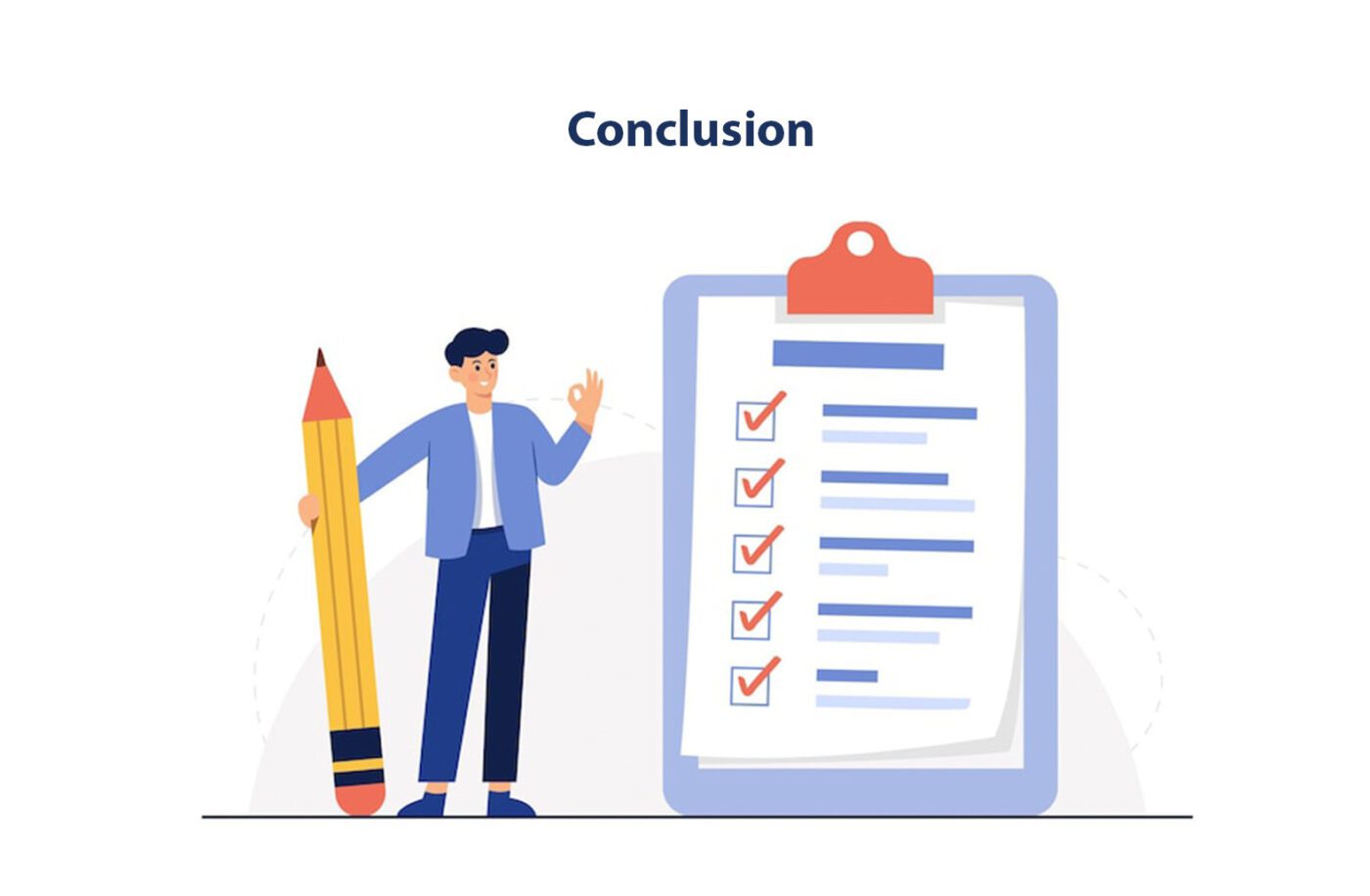
In summary, dropshipping is a legal and viable business model in India, provided you navigate the legal landscape diligently. Register your business, understand your tax obligations, prioritize consumer protection, and comply with import/export laws. By following these guidelines, you can embark on your dropshipping journey with confidence.
FAQs Related to Legality of Dropshipping in India
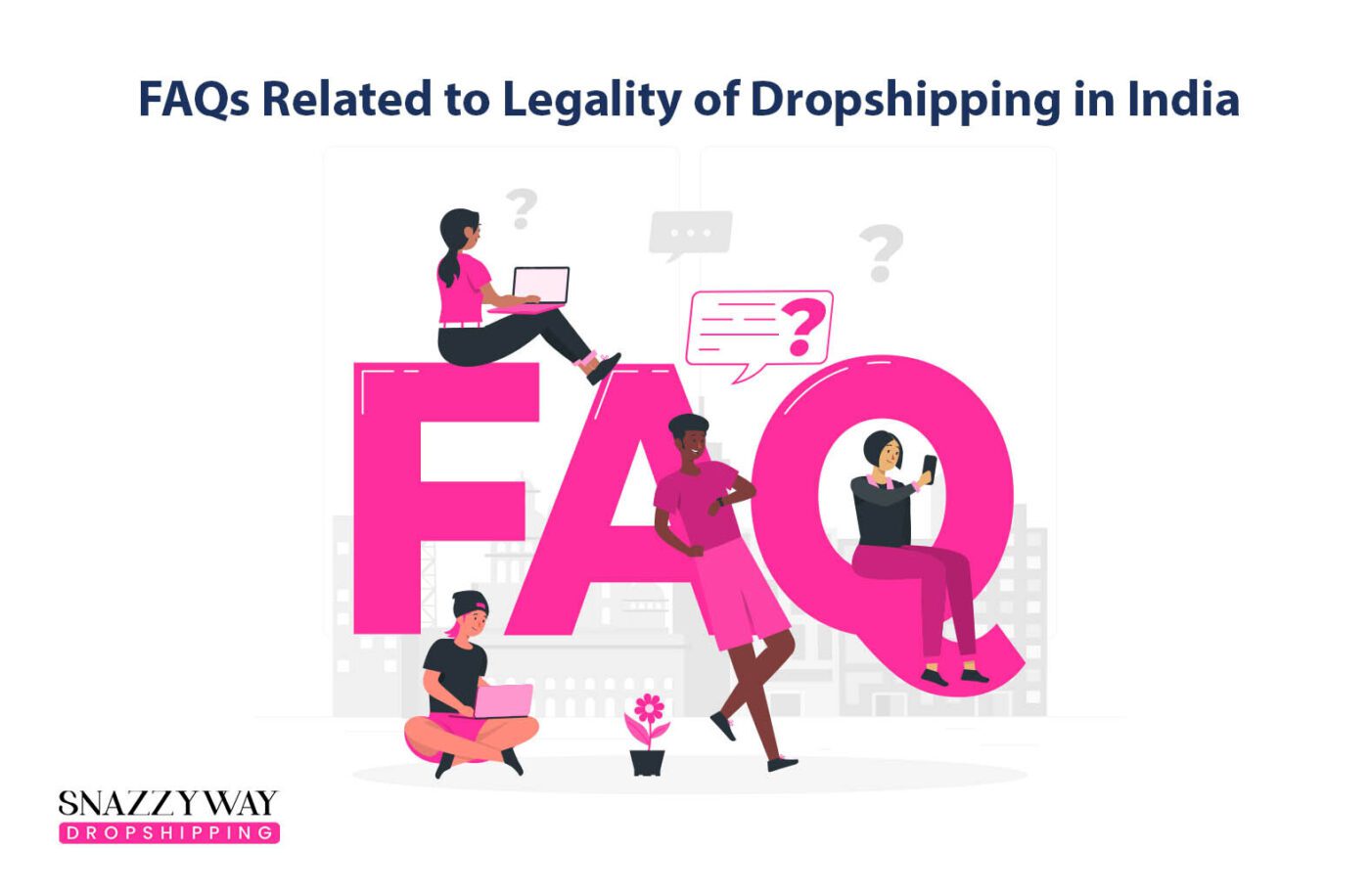
Q. Do I need a business license for dropshipping in India?
A. It is not mandatory to register your dropshipping business in India, but it is advisable to do so. Registering your business will give you several benefits, such as limited liability protection and access to government schemes and programs.
Q. Do dropshippers pay taxes in India?
A. Yes, dropshippers in India are liable to pay income tax and Goods and Services Tax (GST). The income tax rate will vary depending on your income, while the GST rate will be determined by the products you are selling.
Q. How much dropshippers earn in India?
A. The amount of money that dropshippers earn in India varies depending on a number of factors, such as the niche they are in, the products they are selling, and their marketing and advertising efforts. However, it is possible to earn a good living from dropshipping in India.
Q. Is dropshipping successful in India?
A. Yes, dropshipping is a successful business model in India. The Indian e-commerce market is growing rapidly, and dropshipping is a popular way for entrepreneurs to start an online business.
Q. Can I start dropshipping with no money?
A. It is possible to start a dropshipping business with no money, but it will be more challenging. You will need to find suppliers who are willing to work with you on a consignment basis, which means that you will only pay for the products once you have sold them. You will also need to invest in marketing and advertising to attract customers.
Q: What are the benefits of dropshipping in India?
A: Dropshipping offers a number of benefits for entrepreneurs in India, including:
- Low startup costs: You do not need to invest in inventory, which can be a major barrier to entry for traditional retail businesses.
- Flexibility: You can run your dropshipping business from anywhere in the world, and you can choose your own hours.
- Scalability: Dropshipping is a highly scalable business model. As your sales increase, you can simply partner with more suppliers to meet the demand.
- Wide range of products to sell: You can sell any type of product that you can find a supplier for. This gives you a lot of flexibility in choosing a niche and appealing to a wide range of customers.
Q: What are the legal considerations for dropshipping in India?
A: The following are some of the legal considerations for dropshipping in India:
- Business registration: It is not mandatory to register your dropshipping business in India, but it is advisable to do so. Registering your business will give you several benefits, such as limited liability protection and access to government schemes and programs.
- Taxes: Dropshippers in India are liable to pay income tax and Goods and Services Tax (GST). The income tax rate will vary depending on your income, while the GST rate will be determined by the products you are selling. It is important to ensure compliance with tax regulations to avoid legal complications.
- Consumer protection laws: Dropshippers operating in India are subject to the Consumer Protection Act, 2019. This legislation is designed to safeguard consumers from unfair trade practices and defective products. As a dropshipper, it is essential to uphold high standards of product quality and customer service to avoid legal repercussions.
- Import and export laws: If you are sourcing products from outside of India, you must comply with all applicable import and export laws. This includes adhering to customs regulations, obtaining necessary licenses, and ensuring the legality of the products you are importing.
Q: How can I start a dropshipping business in India?
A: To start a dropshipping business in India, you can follow these steps:
- Choose a niche: What type of products do you want to sell? Once you have chosen a niche, you can start researching suppliers.
- Find reliable suppliers: When choosing suppliers, it is important to consider factors such as product quality, shipping times, and customer service. You should also make sure that the suppliers are willing to ship to India.
- Create a website: You will need a website to showcase your products and process orders. There are many different e-commerce platforms that you can use, such as Shopify and WooCommerce.
- Market your business: Once your website is up and running, you need to start marketing your business to attract customers. There are many different marketing channels you can use, such as social media, search engine optimization (SEO), and pay-per-click (PPC) advertising.
Q: What are some tips for running a successful dropshipping business in India?
A: Here are some tips for running a successful dropshipping business in India:
- Choose the right products to sell: There are many factors to consider when choosing products to sell, such as demand, competition, and profitability. It is also important to choose products that are legal to sell in India.
- Build a strong brand identity: Your brand is what will set you apart from other dropshippers. Develop a unique brand identity that reflects your values and the products you sell.
- Invest in marketing and advertising: Marketing and advertising are essential for driving traffic to your website and generating sales. There are many different marketing channels you can use, such as social media, search engine optimization (SEO), and pay-per-click (PPC) advertising.
- Provide excellent customer service: Customer service is critical to any business, but it is especially important for dropshippers. Since you do not have direct control over the shipping and fulfillment process, it is important to be responsive to customer inquiries and resolve any issues promptly.

